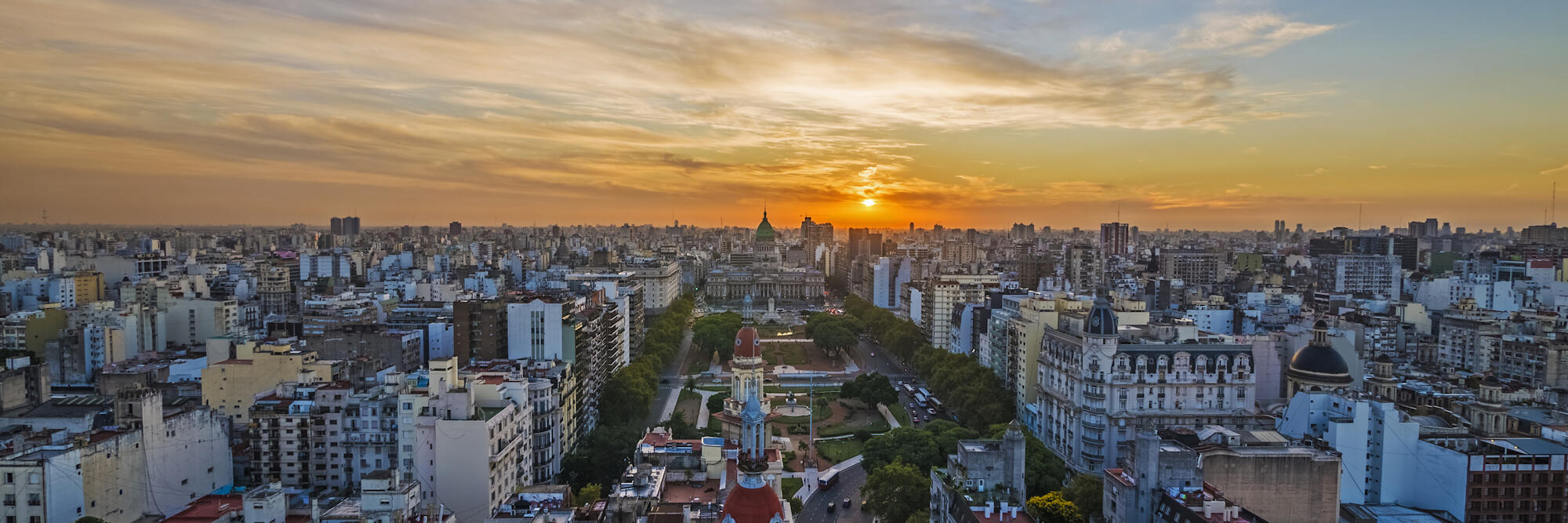Deby ran away from home in 2004 and never regretted it. She went from owning a small IT business to a completely new life in Buenos Aires. She has owned a small bed and breakfast, taught tango, and designed clothes. She teaches English and does translations, and she is super happy. Follow her on Facebook to keep updated on her adventures, or check out her blog La Vida Con Deby for more about tango, late nights and her new identity living in Buenos Aires.
Read more about expat life in Argentina in our Expat Arrivals Argentina country guide.
About Deby
Q: Where are you originally from?
A: I was born in Michigan, but I lived most of my life in California.
Q: Where are you currently living?
A: Buenos Aires, Argentina (Capital Federal )
Q: When did you move here?
A: I started coming to Buenos Aires in 2000 to dance tango. In 2004, after 16 visits, I made it permanent.
Q: Is this your first expat experience?
A: Sure
Q: Did you move here alone or with a spouse/family?
A: I came with my dog.
Q: Why did you move?
A: I came here to dance tango. I also wanted a life change from working 12 hours a day and sometimes seven days a week. I felt like in the US I had tons of things (and friends), but no one ever really had time to do anything because we were always working.
Living in Buenos Aires
Q: What do you enjoy most about Buenos Aires? How would you rate the quality of life compared to the United States?
A: I don’t think this is something you can do. An expat is someone who doesn’t plan to stay in the country they are in. I consider myself an immigrant as I am here to stay. My life here is completely different and not that easy to compare. I love the city. I have a great life. There is always something to do and see. Buenos Aires is full of culture, and lots of it is free. I think I am much healthier because I live here. The quality of the food here is excellent – almost no canned or frozen stuff. Food is more natural.
Q: Any negative experiences? What do you miss most about home?
A: I don’t really miss anything anymore. Old Navy jeans and Costco vitamins, if I had to choose something. I can live without these things, but I can also buy them when I go back.
Q: What are the biggest adjustments you had to make when settling into expat life here? Did you experience any particular elements of culture shock?
A: I didn’t realize how miserable my Spanish was until I had to live in a country where it is the language. It forced me to become fluent. I also didn’t expect to be discriminated against because I was A) a foreigner and B) a woman. Coming from the San Francisco Bay Area, the machismo of the men was shocking.
Q:What’s the cost of living compared to the US? Is there anything particularly expensive or particularly cheap in Buenos Aires?
A: I could never live anywhere in the US for what I pay here. Everything is cheaper except maybe electronics.
Q: How would you rate the public transport in Buenos Aires? What is your most memorable experience of using the city’s transport system?
A: Public transportation here is EXCELLENT. You can go anywhere in the country by public transportation. Here in the Capital Federal we have a metro, tons of buses and trains. I was happy when we finally got cards to use on all the transportation, rather than having to scrounge for change.
Q: How would you rate the healthcare in the city? Have you had any particularly good/bad experiences regarding doctors and hospitals? Are there any hospitals you would recommend?
A: There are excellent facilities here. Like everywhere else, you have to find the doctors that work best for you. I have private healthcare, although there is public healthcare here. I don’t like that you don’t have a primary care doctor. You have to go to an urgent care center where they do not have your records. Some of the best hospitals are Hospital Italiano, Hospital Aleman, Hospital Britanico, Fleni, Sanatorio Otamendi and Sanatorio Anchorena.
Q: What are the biggest safety issues facing expats living in Buenos Aires? Are there any areas expats should avoid?
A: Buenos Aires is like everywhere else. It is a big city. You need to be aware. Most crimes are petty crimes, such as stealing your phone, wallet, or purse. Just give it up, you never know if the robber has a knife or gun.
Q: How do you rate the standard of housing in the city? What different options are available for expats?
A: If you are not a resident, most likely you will have to rent in USD. In order to rent long term you need to be a resident and have a national ID card. You also need to have a guaranty, usually a property or an insurance policy, in case you skip out on the contract. Some landlords will rent long term if you pay the contract up front.
Q: Any areas or suburbs you’d recommend for expats to live in?
A: I live in the Capital and would never live in a suburb in any country. I suppose Zona Norte is another good option.
Meeting people and making friends
Q: Was meeting people and making friends easy? How did you go about meeting new people?
A: Argentines tend to keep their circle of friends from primary and high school and do not always open up to new people. I already knew people when I moved here. I think it is easier for younger people, as there are people who like to meet people from other countries and are more open. The other issue is language; if you don’t speak Spanish, you will be very limited.
Q: Have you made friends with locals or do you mix mainly with other expats? What advice would you give to new expats looking to make friends with the locals?
A: My friends are mostly locals. My advice is to learn the language. Most likely, you will meet locals who want to practice English, etc.
Working in Buenos Aires
Q: Was getting a work permit or visa a relatively easy process? Did you tackle the visa process yourself, or did you enlist the services of an immigration consultant?
A: There is no such thing as a work permit. You need to apply for residency. In order to get residency for work, the company has to sponsor you, and it is a crazy process. I was able to get residency on a one-time presidential decree for people living and working here. I never used an immigration consultant or lawyer; it is not necessary.
Q: What is the economic climate in the city like? Do you have any tips for expats looking to find a job? Which resources did you find most useful?
A: Argentina goes up and down. Right now, we are crashing again. If you are not here legally, then the work you will find is the same as in any country where you aren’t legal, such as a restaurant, a nanny, etc. You can teach your native language, but it does not pay well. Your best bet is to try to work online. Technology work is the one thing that transfers – things like programming.
Q: How does the work culture differ from home? Do you have any tips for expats doing business in Buenos Aires? Have you had any particularly difficult experiences adapting to local business culture?
A: I worked 1000 times harder in the US. It’s very relaxed here. People start work later and leave earlier.
Family and children
Q: Did your children settle in easily? What were the biggest challenges for them during the move?
A: I don’t have kids, but my dog was fine. She got to have a dog walker who took her to the park all day.
Q: What are the schools like? Any particular suggestions?
A: There is public education. The University of Buenos Aires is considered a top university.
Final thoughts
Q: Is there any advice you would like to offer new expat arrivals to your city or country?
A: Please forget your life in the US or wherever you come from. You are here. If you always compare here to there, you are never going to adjust and be happy. There is good and bad everywhere. Your home country was not perfect, and neither is your new country. Try to find the good instead of constantly criticizing what you don’t like. Learn the language. Even if you never attain fluency, it will open up a new world for you. Give yourself time to adjust. If after a year, you still feel unhappy, maybe this is not the right place for you.
► Interviewed September 2019



